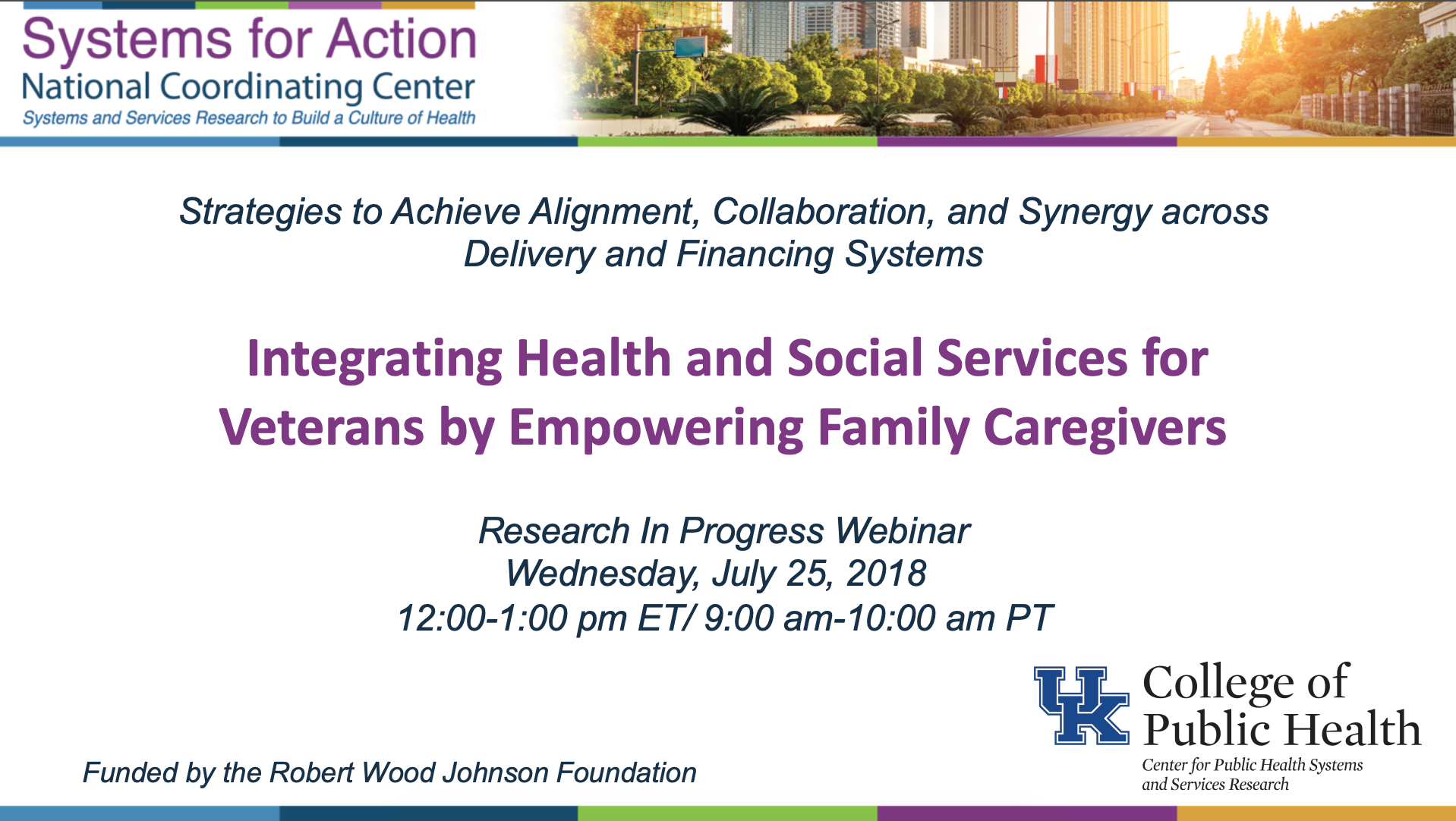
Integrating Health and Social Services for Veterans by Empowering Family Caregivers
This webinar features a research project that investigates the effect of institutional support for family caregivers on veterans’ use of vocational rehabilitation and educational social services.
Injured war veterans face substantial barriers to maintaining employment, high levels of family strain, homelessness, and extensive unmet physical and mental health needs. The Department of Veterans Affairs (VA) offers a range of medical, public health, and social services to eligible veterans; however, these services reside within distinct bureaus leading to service fragmentation, poor alignment with veteran needs, and variability in access across medical centers.
Federal funding was approved in 2010 to establish a national program to provide veterans’ caregivers with training on how to navigate the VA system, function as a care team member, and improve clinical skills. Evidence from the initial group of enrollees showed that veterans whose family caregivers participated in the program utilized more primary, specialty, and mental health services than did those whose caregivers did not participate. While use of health services increased, data regarding the influence of family caregivers on veterans’ use of social services is still needed.
Study findings will elucidate key contextual and scalable features of institutional support for family caregivers that can reduce system inefficiencies through improved services coordination.

 Back to Resources
Back to Resources